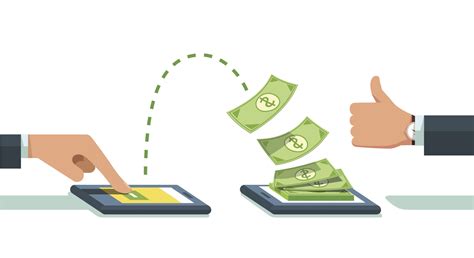In today’s interconnected world, establishing an online presence is no longer just about visibility; it’s increasingly about generating sustainable income. From bloggers and content creators to small businesses and large enterprises, the digital realm offers a vast array of opportunities to transform online engagement into tangible revenue. The journey to monetize your online presence is multifaceted, requiring strategic planning, consistent effort, and a keen understanding of your audience and the various monetization models available. It’s about more than just placing ads; it involves building value, fostering trust, and converting that value into income through diverse channels.
For individuals and businesses, understanding these strategies can open up new economic avenues and expand their reach far beyond local markets. This comprehensive guide will delve into the profound importance of online monetization, explore various effective strategies, detail the essential steps and tools for implementation, address common challenges, and envision the future landscape of digital income generation.
The Importance of Online Monetization
Monetizing your online presence is crucial for sustaining digital efforts, fostering growth, and achieving financial independence.
- Sustainability of Content Creation: For content creators, monetization provides the necessary financial resources to continue producing high-quality content, investing in equipment, and dedicating time to their craft.
- Business Growth and Expansion: For businesses, online revenue streams supplement or replace traditional income, allowing for reinvestment in product development, marketing, and expansion into new markets.
- Diversification of Income: Relying on a single income source is risky. Online monetization strategies offer diverse revenue streams, providing financial stability and resilience against market fluctuations.
- Enhanced Reach and Impact: Financial sustainability allows for greater investment in marketing and promotion, expanding the reach of your message, products, or services to a wider audience.
- Validation of Value: When people are willing to pay for your content, products, or services online, it serves as a strong validation of the value you provide to your audience.
- Financial Independence and Flexibility: For individuals, successful online monetization can lead to greater financial freedom, allowing for flexible work arrangements and the pursuit of passions.
- Leveraging Existing Audience: Instead of just having an audience, monetization allows you to leverage that audience’s trust and engagement into a measurable financial return.
- Global Market Access: The internet inherently offers access to a global customer base, enabling even small businesses to tap into international markets that were previously inaccessible.
- Continuous Improvement: Revenue generated can be directly reinvested into improving your online presence, refining your products, or enhancing user experience, creating a positive feedback loop.
- Measuring Success: Financial metrics provide clear, quantifiable ways to measure the success of your online strategies, allowing for data-driven adjustments and optimization.
Diverse Strategies for Online Monetization

A wide array of strategies exists for generating income from your online presence, each suited to different types of content, audiences, and business models.
- Advertising (Display Ads, Native Ads, Video Ads):
- Description: Displaying advertisements on your website or within your content, typically managed through ad networks like Google AdSense or direct ad sales.
- Mechanism: Revenue is generated based on impressions (CPM – Cost Per Mille/Thousand views) or clicks (CPC – Cost Per Click).
- Suitability: Best for websites with high traffic volume and engaging content that keeps users on pages for extended periods.
- Affiliate Marketing:
- Description: Promoting products or services from other companies and earning a commission for every sale, lead, or click generated through your unique affiliate link.
- Mechanism: Requires building trust with your audience and aligning promotions with your content niche.
- Suitability: Ideal for content creators (bloggers, reviewers) who regularly recommend products or services to their audience.
- Selling Digital Products (eBooks, Courses, Templates, Software):
- Description: Creating and selling your own digital goods that can be downloaded or accessed online. This includes e-books, online courses, software, presets, templates, or digital art.
- Mechanism: High-profit margins as there are typically no recurring production costs after creation.
- Suitability: Excellent for experts or creators with specialized knowledge or unique digital assets to share.
- Selling Physical Products (E-commerce):
- Description: Establishing an online store to sell tangible goods, either self-produced (crafts, merchandise) or sourced from suppliers (dropshipping).
- Mechanism: Requires inventory management, shipping logistics, and customer service.
- Suitability: For businesses with physical products or individuals looking to venture into retail without a traditional storefront.
- Subscriptions and Memberships (Exclusive Content/Community):
- Description: Offering exclusive content, features, or community access to members who pay a recurring fee.
- Mechanism: Provides predictable recurring revenue and fosters a loyal, engaged community.
- Suitability: Great for niche content creators, educators, or community builders with highly valuable, ongoing content.
- Donations and Crowdfunding:
- Description: Allowing your audience to support your work directly through voluntary financial contributions.
- Mechanism: Relies on the goodwill and perceived value from your audience.
- Suitability: Common among artists, non-profits, independent journalists, or content creators who want to keep their content freely accessible.
- Sponsorships and Brand Partnerships:
- Description: Collaborating with brands to promote their products or services in exchange for a fee, often involving sponsored posts, videos, or dedicated campaigns.
- Mechanism: Requires a strong, engaged audience and careful alignment with brand values.
- Suitability: Popular among influencers, podcasters, and content creators with significant reach in specific niches.
- Freelancing and Consulting Services:
- Description: Using your online presence (website, portfolio, social media) to showcase your expertise and attract clients for services like web design, writing, marketing, or coaching.
- Mechanism: Your online presence acts as a powerful lead generation tool.
- Suitability: Ideal for skilled professionals seeking to offer their services independently.
- Lead Generation and Sales Funnels:
- Description: Building an online system to capture potential customer information (leads) and nurture them through a sales process.
- Mechanism: Focuses on converting website visitors into qualified leads that can then be turned into customers.
- Suitability: Essential for businesses selling high-value products or services that require a longer sales cycle.
- Selling Leads or Data (with consent):
- Description: In specific industries, collecting qualified leads (with proper consent and privacy compliance) and selling them to businesses looking for potential customers.
- Mechanism: Requires strict adherence to data privacy laws and ethical practices.
- Suitability: Niche business models, often in finance, insurance, or education sectors.
Significant Steps and Tools for Online Monetization
Implementing a successful monetization strategy involves a series of structured steps and the utilization of appropriate digital tools.
- Build a Strong Online Presence:
- Website/Blog: Establish a professional and user-friendly website or blog as your central hub. This is where your content lives and where many monetization strategies will be implemented.
- Social Media: Develop a strong presence on relevant social media platforms to engage with your audience, drive traffic, and build community.
- Understand Your Audience and Niche:
- Demographics and Psychographics: Use analytics tools to understand who your audience is, what their interests are, their pain points, and their purchasing power.
- Content Alignment: Create content that directly addresses your audience’s needs and interests, as this builds trust and engagement, crucial for any monetization.
- Choose Your Monetization Strategies:
- Diversify: Don’t put all your eggs in one basket. Select a combination of monetization methods that align with your content, audience, and business goals.
- Start Small: Begin with one or two strategies, refine them, and then gradually add more as you grow.
- Create Valuable Content:
- High Quality: Regardless of the monetization method, high-quality, original, and valuable content is the foundation. It attracts and retains your audience.
- Consistency: Regularly publish new content to keep your audience engaged and returning to your platform.
- Optimize for SEO (Search Engine Optimization):
- Keyword Research: Identify keywords your target audience uses to find information related to your niche.
- On-Page SEO: Optimize your website’s content, structure, and technical aspects to rank higher in search engine results, driving organic traffic.
- Backlinks: Build high-quality backlinks to your site to increase its authority and search engine ranking.
- Build an Email List:
- Direct Communication: An email list provides a direct communication channel with your audience, independent of social media algorithms.
- Nurturing Leads: Use email marketing to nurture leads, promote products, share exclusive content, and drive sales.
- Implement Chosen Monetization Tools:
- Ad Networks: Sign up for Google AdSense, Mediavine, or Ezoic for display advertising.
- Affiliate Platforms: Join affiliate networks like ShareASale, CJ Affiliate, Amazon Associates, or specific brand programs.
- E-commerce Platforms: Use Shopify, WooCommerce, Etsy, or Gumroad for selling products (physical or digital).
- Membership Platforms: Explore Patreon, MemberPress, or Substack for subscriptions and exclusive content.
- Payment Gateways: Integrate secure payment solutions like PayPal, Stripe, or local options relevant to Indonesia.
- Promote Your Offerings:
- Integrated Promotion: Naturally integrate your monetization efforts within your content (e.g., mentioning your e-book in a relevant blog post).
- Marketing Channels: Use social media, email marketing, paid ads, and collaborations to promote your products, services, or sponsored content.
- Analyze Performance and Optimize:
- Analytics Tools: Regularly use tools like Google Analytics, CRM dashboards, and ad network reports to track key metrics (traffic, conversions, revenue).
- A/B Testing: Continuously test different approaches, calls-to-action, pricing models, and ad placements to optimize performance and maximize income.
- User Feedback: Gather feedback from your audience through surveys or comments to understand their needs and refine your offerings.
The Future Trajectory of Online Monetization

The future of online monetization is dynamic, driven by technological advancements, evolving consumer behaviors, and increasing emphasis on value and trust.
- Hyper-Personalization of Ads and Offers:
- AI-Driven Targeting: AI and machine learning will enable even more precise ad targeting and personalized product recommendations, leading to higher conversion rates and AdSense CPC.
- Dynamic Pricing: Real-time adaptation of pricing based on user behavior and demand.
- Creator Economy Expansion:
- Direct-to-Fan Models: The rise of platforms facilitating direct monetization for creators (e.g., Substack, Patreon, OnlyFans) will continue, empowering individuals to bypass traditional gatekeepers.
- NFTs and Digital Collectibles: New avenues for creators to monetize unique digital assets directly through blockchain technology.
- Interactive and Immersive Monetization:
- Metaverse and VR/AR Commerce: Monetization within virtual and augmented reality environments, offering new forms of digital product sales and interactive advertising.
- Gamified Monetization: Integrating game-like elements into websites to encourage engagement and specific monetization actions.
- Increased Focus on First-Party Data and Privacy-Preserving Ads:
- Cookie-less Future: As third-party cookies phase out, a greater emphasis will be placed on building first-party data strategies and privacy-centric advertising solutions.
- Contextual Advertising: Resurgence of contextual advertising, where ads are highly relevant to the content being viewed, rather than individual user data.
- AI-Powered Content Creation and Optimization for Monetization:
- Automated Content: AI tools will assist in generating optimized content variations for higher ad revenue or affiliate conversions.
- Predictive Analytics for Revenue: AI will predict optimal content formats, publishing times, and monetization placements to maximize earnings.
- Subscription Economy Dominance:
- Beyond Content: Subscription models will expand beyond traditional media to encompass software-as-a-service (SaaS), exclusive product access, and curated experiences.
- Flexible Tiers: More flexible and personalized subscription tiers to cater to diverse user needs.
- Micro-Transactions and Tipping Culture:
- Support for Creators: Continued growth in micro-payments and tipping functionalities, allowing audiences to directly support creators in small increments.
- Integrated Payment: Seamless integration of payment options within content platforms.
- Ethical Monetization and Transparency:
- User Control: Greater emphasis on transparent data collection practices and giving users more control over their data preferences for monetization.
- Brand Responsibility: Brands and platforms will increasingly prioritize ethical advertising and responsible monetization strategies.
- Integrated E-commerce Experiences:
- Social Commerce: Seamless shopping experiences directly within social media platforms.
- Livestream Shopping: Interactive live video streams where products are showcased and can be purchased in real-time.
- Local and Niche Monetization:
- Hyper-Local Advertising: Advanced geo-targeting for local businesses, even in specific areas like Semanu, Yogyakarta, to connect with nearby customers.
- Niche Marketplaces: Growth of highly specialized online marketplaces for unique products and services.
Conclusion
Monetizing your online presence is no longer a luxury but a strategic imperative for individuals and businesses aiming for sustained growth and influence in the digital age. By thoughtfully selecting and implementing diverse monetization strategies—from advertising and affiliate marketing to selling digital products and building subscription communities—you can transform your online efforts into tangible financial returns.
While the journey presents challenges related to audience building, technological shifts, and ethical considerations, the continuous evolution of digital tools and consumer behavior promises exciting new avenues for revenue generation. By prioritizing valuable content, understanding your audience, embracing data-driven optimization, and staying agile, anyone with an online presence can unlock its full economic potential, fostering innovation and achieving long-term success in the dynamic global digital economy.













